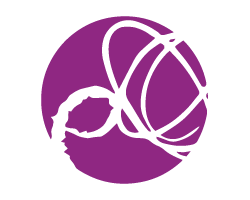The Body as a Voice
Understanding and working with Non-suicidal Self-Injury in Young PeoplePresented by Dr. Madeline Wishart
Why do young people self-injure? The urge to cut, scratch, rub, tear and burn our skin seems in direct contrast to our innate instincts of self-preservation and survival. Yet, nonsuicidal self-injury (NSSI) is a significant physical and mental health concern affecting adolescents. In 2020 – 2022, an estimated 8.7% of Australians aged 16 to 85 years had engaged in NSSI across their lifetime (Australian bureau of statistics, 2023). NSSI is highly confronting and distressing to family, friends, and educators. The behaviour or its consequences results in significant personal costs, such as permanent physical scarring, significant distress, interference with interpersonal relationships, and academic and social impacts at school.
This full day workshop will focus on practical information and skills tailored for managing nonsuicidal self-injury (NSSI) that can readily be applied in your work with young people. Drawing from the latest research, including Dr Wishart’s PhD on NSSI, the workshop provides a comprehensive profile of NSSI, including differentiating NSSI from suicide; a concrete operational definition of the behaviour; identification of those at greater risk of NSSI. A significant component of the workshop is dedicated to strategies that can be employed to help decrease self-injurious behaviours. Additionally, it covers the management of NSSI within family, school, or other contexts; managing the environmental effects of NSSI amongst young people; and duty of care responsibilities.
See below for full workshop outline, learning outcomes, and Dr Madeline Wishart's Bio.
2024 DATES
Virtual: Friday 22nd March
Virtual: Friday 23rd August
All workshops are 9am - 4pm
CPD HOURS
ACTIVE CPD HOURS: This workshop has an optional post workshop assessment. Delegates who complete this assessment are able to claim 6 hours of Active CPD.
CPD Hours: All other delegates are able to claim 6 hours of self identified CPD in your respective professions.
REGISTRATION FEES
Virtual Workshops:
Early Bird: $352 inc GST (3 weeks prior to workshop) Standard: $407 inc GST (within 3 weeks of workshop)
* Please note that the virtual workshop is an online full day event. It will not be recorded
F2F Workshops:
Early Bird: Workshop: $407 inc GST (3 weeks prior to workshop) Standard: $462 inc GST (within 3 weeks of workshop)
Dr Madeline Wishart is a Clinical Psychologist with a special interest in non-suicidal self-injury (NSSI), and young people who experience difficulty in regulating their emotionally and tolerating distress. She has a PhD, along with a Masters in both Professional and Clinical Psychology. Madeline has a combined history of both research and practical experience across a variety of settings. She has worked in the education, community, private and psychiatric sectors as a youth, school, trauma counsellor, and psychologist. In an academic and research capacity, Madeline has been employed as a sessional lecturer and project officer at Victoria University; and a research officer at Youth Support and Advocacy Service (YSAS) in Melbourne. For the past two decades, Madeline has provided professional training in NSSI and distress tolerance in young people, and she has been invited to present at a number of international mental health conferences. Madeline currently divides her time between her private practice – Wishart Psychology; and working in a consultative capacity with schools providing professional development, therapeutic support and policy development around NSSI and coping skills more broadly.
With an academic background and vast experience in working with young people engaging in NSSI, including as a school counsellor, Dr Wishart understands the unique challenges of working with young people. Dr Wishart's workshops are comprehensive and highly practical - much of which you will be able to directly and immediately incorporate into your own work with young people.
Workshop Outline
WORKSHOP OUTLINE
Session 1
What is NSSI? Differentiating self-injury from suicide. Key features, prevalence rates, comorbidity, risk factors, short and long term consequences, and latest research findings.
Session 2
The myths about NSSI. Developing a theoretical understanding of NSSI and why young people self-injure. The functions of NSSI and how to assess them. The environmental effects of self-injury and how to manage these effects within the family, school or other contexts. Duty of care responsibilities.
Session 3
Managing & containing NSSI: working with or within schools or other organisations to develop written protocols for supporting young people who are engaging in non-suicidal self-injury and minimising the environmental or social effects of NSSI. Key components in minimising harm around self-injurious behaviours. Appropriate steps when a young person discloses self-injury for friends, parents, and school staff or other professionals. Undertaking a basic medical assessment and appropriate referrals.
Session 4
Working with young people who self-injure: NSSI safety planning, exploring alternatives to self-injury, including targeted coping skills to meet the functions of self-injury. Developing a coping kit.
LEARNING OUTCOMES
- Increased understanding of self-injurious behaviours: key features, prevalence rates, comorbidity, risk factors.
- Increased knowledge of the latest research findings on NSSI.
- Gain practical and effective skills in working with young people who engage in NSSI.
- Develop knowledge of how to develop appropriate protocols for working with, and supporting young people who engage in NSSI.
- Develop skills in functional assessment and targeted coping skills.



